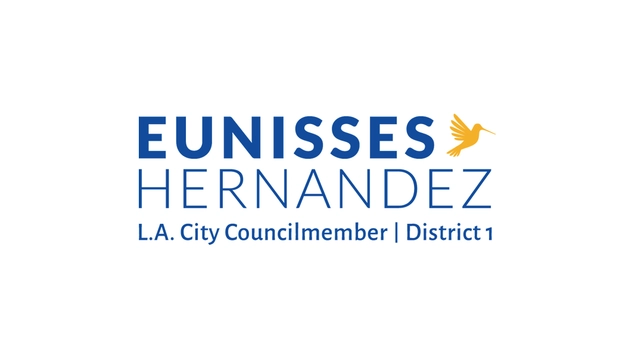
LOS ANGELES — Today, Councilmember Eunisses Hernandez introduced a package of legislation to reform the City of Los Angeles’ budgeting process. Councilmember Hernandez’s legislation builds on a streak of budget advocacy since taking office and aims to address long-standing issues in the City’s budgeting process by spurring increased transparency and accountability.
“Budgets are a statement of our values. It’s time for L.A. to have a budgeting process that prioritizes the needs of our residents and gives them a real say in how their tax dollars are spent,” said Councilmember Hernandez. “These reforms will help right-size our lopsided budget and move us towards a more fiscally responsible, transparent budget that reflects the values and priorities of Angelenos.”
Moving to a Two-Year Budget Cycle
Currently, the City’s budget runs annually from July 1st to June 30th, with the Mayor, Council, and City departments deliberating its composition. The City Charter requires that the Mayor publish their budget priorities for the upcoming fiscal year by February 1st and deliver the proposed budget to the Council by April 20th of each year. The Council must adopt or modify the proposed budget by June 1st and send the budget to the Mayor for signature or veto. This compressed timeline does not allow the City Council to conduct more thorough budget hearings nor provide sufficient opportunities for the public to engage in the budget process. During the recent hearings for the 24-25 budget, only one day of public comment was available to Angelenos during the Budget, Finance, and Innovation Committee.
In June, City Council adopted an amended report from the Ad Hoc Committee on City Governance Reform, which referred a number of proposals to a Charter Reform Commission, including a proposal to allow the Mayor to submit a 2-year budget instead of an annual budget to the City Council for consideration and adoption. The report included detailed recommendations for further assessment by the Charter Reform Commission, Council, and the Mayor. One of Councilmember Hernandez’s motions seeks to proactively address existing barriers and develop concrete solutions that include integrating language justice, addressing the digital and technological divide, providing accessible hours and locations for the engagement of working families, and incorporating a cycle of ongoing feedback to build accountability.
“I applaud Councilmember Hernandez’s budget process reforms. As the City’s accountant and watchdog, I have advocated for these reforms to fix our City’s broken budgeting process,” said City Controller Kenneth Mejia. “These reforms will allow for participation from Angelenos on the budget process and put us on the right path to improve city services and fix our crumbling infrastructure. Better budgeting leads to better outcomes: a safer, more sustainable, and more equitable city.”
Establishing a Permanent Model for Participatory Budgeting
In 2021, City Council initiated a participatory budgeting pilot program, the Los Angeles Reforms for Equity and Public Acknowledgement of Institutional Racism (L.A. REPAIR). The program is spearheaded by the Civil + Human Rights and Equity Department, and it provides residents with the ability to weigh in on how general fund dollars are allocated to nine historically disadvantaged and underinvested neighborhoods. While the pilot showed promising results, the initial $8.5 million allocation has been nearly spent, and there are currently no existing budget line items to continue the effort.
A motion introduced today by Councilmember Hernandez seeks to expand and permanently integrate participatory budgeting into the City’s budgeting process, ensuring that Angelenos have direct influence over how their tax dollars are spent.
"Participatory Budgeting gives real people, real power, over real money - and our residents have used this program to address key community needs," said Capri Maddox, General Manager of the Los Angeles Civil Rights Department.
Data Driven Decision Making
Presently, the City employs several different websites and tools to collect and make accessible to the public various budget documents, reports, letters, virtual public comment submissions, and Community Impact Statements. While these platforms have been instrumental to the budgeting process, they fall short of more modern, streamlined systems employed by many municipalities and fail to leverage the power of 21st-century data analysis and visualization practices.
A Hernandez motion introduced today points to Sacramento’s Budget Equity Resource Guide and Tool (BERG/T)—a curated tool that evaluates the impacts of budget decisions on programs and services through a racial equity lens—as an example of ways to utilize technology and data to better understand the implications of budget decisions and resource allocations for underserved groups and neighborhoods. The motion directs departments to begin the process of modernizing L.A.’s technological infrastructure for budgeting by auditing its existing engagement tools and providing recommendations to overhaul the systems with a focus on integrating community surveys, data collection, and data visualization, while prioritizing accessibility.
Read Councilmember Hernandez’s full package of legislation by clicking the links below: